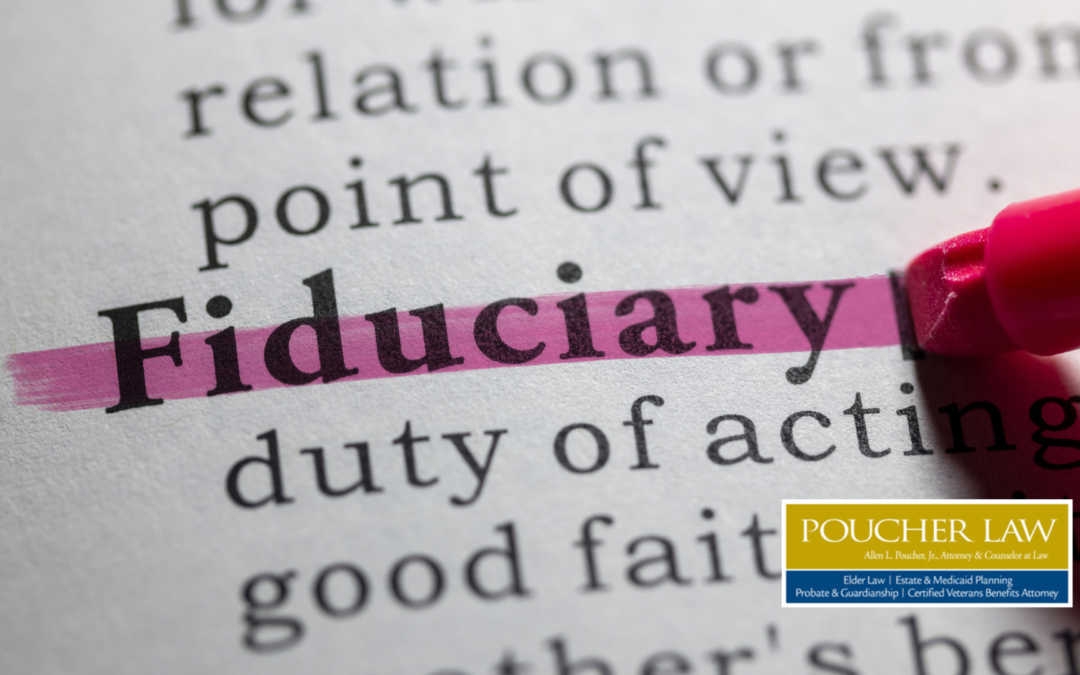In thinking about your estate plan, what is one of the key components you should consider? Be aware, your estate includes your wealth, like your home, bank accounts and investments, your health and all your plans you have for your legacy. Even if you create the best possible estate plan with your attorney, your plan may fail if you do not have the right fiduciary, who is a key component of your estate, in place.
What does a fiduciary do? The fiduciary in your estate plan is the individual you choose to work with your attorney to put your plans into action should you be unable to. Identifying a good fiduciary does not have to be difficult, but it also should not necessarily be your best friend or favorite family member. Your fiduciary has an important role and needs to possess the skills to accomplish your goals.
Now, your fiduciary should be able to help you manage your wealth, invest wisely, reduce waste and costs, and help your estate focus on your legacy goals. It is important that you know that this does not only apply to the super rich. The right fiduciary is able to protect what you have now, and even enable it to grow when they take over. It is critical for you to find a good fiduciary to take over at a time when you cannot act for yourself.
With all that said, how do you identify the right person? Are there certain characteristics and traits you should look out for? We have a few key questions we would like to share with you including, but not limited to, the following:
• Does this person understand your personal financial planning goals?
• Does this person have significant management and investment experience?
• Does this person have experience in your specific type of assets?
• Can this person generate reports, accountings, and management assessments?
• Does this person have an understanding of tax planning and charitable planning goals?
• If needed, can this person be bonded?
• Is this person available to act when called upon to do so?
• Can this person provide tax and retirement planning help, if requested?
• Is this person able to manage at a set cost that does not occasionally change?
• Is this person able to adhere to the trust’s legacy planning goals?
• Does this person understands the value in working with your estate planning attorney
These are just a few of the careful questions that need to be asked when you begin to consider who should act as the fiduciary of your estate plan.
In addition, while the fiduciary addresses the management of your estate, it is important to also consider the trusted person you want to be in charge of your health care and day to day needs as well. Your experienced Florida estate planning attorney will be able to discuss with you the distinctions between these responsibilities as you meet and plan together.
We know this can be a challenging part of the planning process and are here to assist you. As experienced estate planning attorneys we work with individuals and families just like yours to help them find solutions and create the legacy they want. We encourage you to contact us to schedule a meeting to discuss your goals.
Planning for the future is critical to ensure that your goals for the end of life are achieved. We know this article may raise more questions that it answers. We do telephone, computer, and face-to-face appointments. Our face-to-face appointments are held outside in the open air (frequently selected by clients for document signing) and inside our office conference room. We follow all CDC guidelines. Our office procedures adhere to COVID-19 safety protocols and are designed and enhanced by medical review and air quality engineering.

